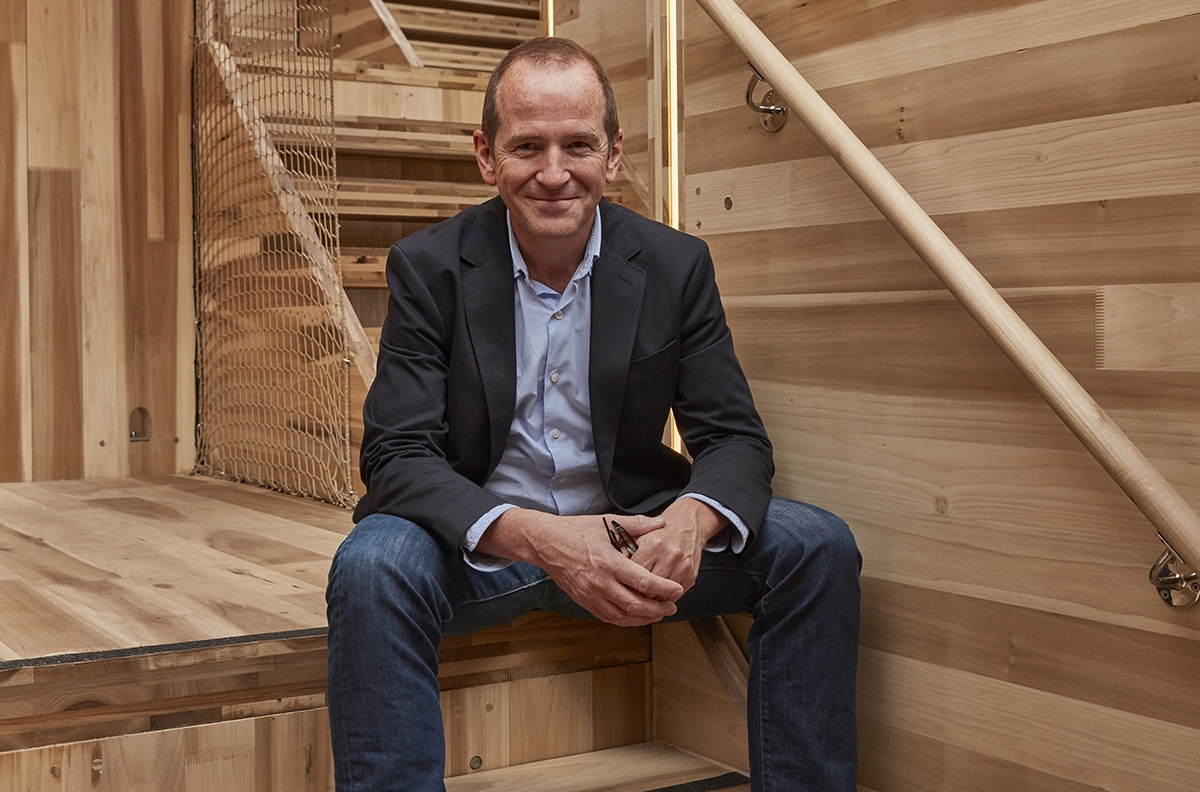
A specialist in timber architecture and construction has claimed a focus on sustainable forestry from the ground up could be key to building back better.
Speaking ahead of the Wood for Good conference, which runs alongside COP26 next week, Andrew Waugh – co-founder of Waugh Thistleton Architects – said managing homegrown timber resources is critical to supporting demand to help the construction sector adopt sustainable materials.
He said, “Forest practices need continuous improvement, and we need to work to ensure that the industry achieves the lowest carbon processes possible. More than 50% of European timber is still burned as a ‘green’ fuel and this is a travesty. We need to shine the light of thorough life-cycle assessments across the construction industry – timber included.”
A free one-day conference on 2 November aims to celebrate developments in the timber sector, with the event forming part of the BE@COP26showcase, hosted by Construction Scotland Innovation Centre (CSIC).
Andrew Waugh added, “There are vast opportunities for homegrown timber to shape a better built environment, and with that comes a chance to rethink the way we plant trees and manage forests. We can grow more and grow better, with improved husbandry practices and increased biodiversity supporting the future of timber construction through local forestry. Scotland has vast outdoor spaces and the natural resources to lead this change, particularly as sustainability continues to sit at the top of the agenda.
“Unfortunately, the reality is that the UK still burns more timber than it uses for buildings, but by highlighting the opportunity and raising awareness of the engineering and design possibilities we are starting to see a shift. Much of that is led by technology which will be critical to growing the market; however, there is a lot of work to do to educate and upskill the required workforce.
“Offsite manufacturing and digital transformation will also play a big part in the wider use of timber and that can help to change some of the outdated perceptions of the industry. It’s such an exciting and rewarding career path and, with technology playing a bigger role than ever, we can not only create better quality buildings, but promote diversity across the sector with better working environments and conditions associated with offsite manufacturing.”
Representatives from the Confederation of Forest Industries (Confor), Stewart Milne Timber Systems, Cities4Forests, SNRG and ECOSystems Technologies are also set to speak at the conference.
Sarah Virgo, campaign manager at Wood for Good, said, “Our aim is to make timber the construction sector’s first choice material by sharing and promoting industry knowledge and the conference will be an ideal forum for continuing that discussion.”
For more info and to book a ticket to the conference, visit: www.eventbrite.co.uk/e/wood-for-good-tickets-186628098667








